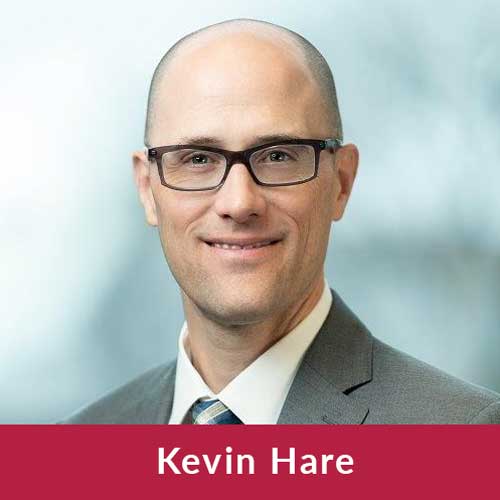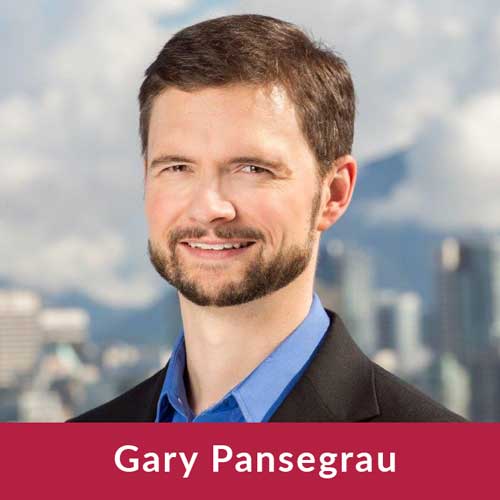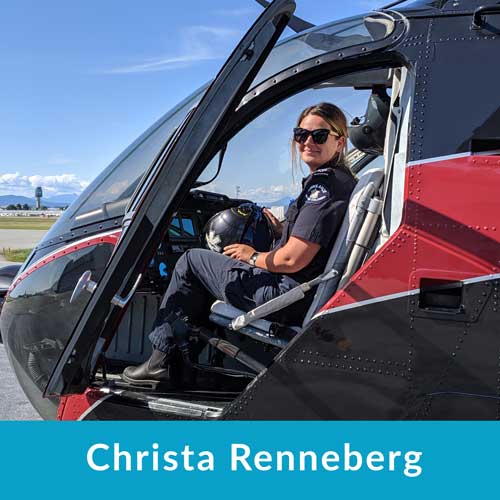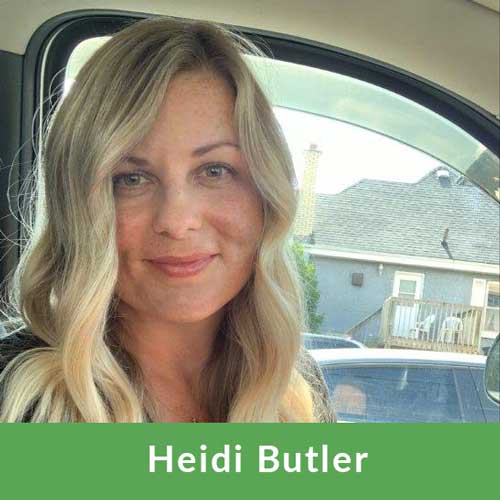Hearts in windows and clanging pots at 7 p.m. – these small gestures of gratitude became part of our new normal in the past year while our care providers worked countless, dedicated hours to keep our patients, clients and families safe as COVID-19 upended the daily routines inside our acute care programs.
This week, PHSA staff are reflecting on our clinical response to COVID-19 and what it took to stay kind, calm and safe in the eye of a global pandemic.
BC Cancer and all six of its regional centres across the province have been running at “full tilt” during the entire pandemic and Kevin Hare, senior executive director, operations, couldn’t be prouder. “It’s a little known fact that we didn’t close any services,” he says. “Making that happen required an immense amount of planning that I can’t take credit for.”
Both Kevin and Dr. Gary Pansegrau, senior executive director, clinical programs and policy, remember first hearing about COVID-19 and wondering how BC Cancer was going to operate. “We heard the stories coming out of China and Italy and just hoped it wouldn’t affect every place in the world,” Dr. Pansegrau recalls. “But then the first case was detected in Canada and that added urgency to our plans on how we would cope.”

Kevin had just started his role at BC Cancer right before the Emergency Operations Centre was struck on March 15, 2020. “This was my second pandemic; I went through H1N1,” he says. “But I was new at BC Cancer, and had to get to know the organization through this significant public health crisis. So I really put my trust in our workforce. I leaned on them to know what was needed and how to harmonize our services to provide safe, efficient care.” And that they did, delivering all chemotherapy, radiation therapy and other services at 100 per cent during the whole pandemic. “I am in awe of our staff,” Kevin emphasizes. “As a leader I wish I could do as much for them as they have for BC Cancer and the people of British Columbia.”

Dr. Pansegrau agrees. “A lot has been asked of everyone, and I want them to know how thankful we are,” he remarks. He feels hopeful now, with vaccines rolling out, that we’ll see a return to the things we used to take for granted: “Things like seeing patients without the worry of COVID-19, but also those everyday activities that make life enjoyable,” he says. “Social interactions, going to restaurants, arranging playdates for your kids, going to the movies. I hope we can get back to that sooner rather than later.”
Chief operating officers Sarah Bell (BC Children’s) and Cheryl Davies (BC Women’s) both think back to the fear they felt when COVID-19 was first being talked about, then detected, in B.C. “I remember moving through different stages, including disbelief and fear, especially because there were so many unknowns about the virus,” Sarah says, while Cheryl explains that her emotions wavered between “shock, fear and an impending sense of doom for what a pandemic would mean.”
But as many can attest, the C&W campus pulled together to adapt quickly to pandemic life. “I look back and am filled with admiration for the incredible teamwork and the friendships that emerged from the intense and relentless work,” Sarah says proudly. Cheryl feels a sense of strong connection with the C&W team. “I’ve learned that our workforce is, in fact, a force,” she says.
“This pandemic has brought to light that we can and will work together to advocate and implement the system changes needed to address inequities and leverage the opportunities to do things differently. Health care is all about relationships, caring, compassion and love. I appreciate every single person at BC Children’s and BC Women’s for their role in realizing this for the people we serve and work with.”
Lynn Pelletier, vice president of BC Mental Health and Substance Use Services, knew that a big challenge lay ahead when COVID-19 emerged locally last year. “We care for some of the most vulnerable patients in the province, many of whom have been involuntarily admitted under the Mental Health Act or through the courts,” she explains. “We didn’t have the option of discharging people into the community or cancelling services.” Nancy Desrosiers, provincial executive director, Correctional Health Services and Forensic Regional Clinics, remembers her heart racing and her mind suddenly moving “in a million different directions.” It was her eighth day in this new role.
Both Lynn and Nancy reminisce with pride at their teams’ courage, compassion and can-do attitude, from implementing infection control practices and screening and testing patients to developing new clinical protocols, donning appropriate PPE and establishing new physical distancing and workplace practices to keep staff safe.
“It was amazing to see how everyone pulled together and took swift action to serve and protect clients and patients despite their own fears and personal circumstances,” Lynn says.
Nancy also recalls everyone’s nimbleness and willingness to adapt and try new approaches: “I remember staff going the extra mile without being asked or told, just wanting to do the right thing,” she shares fondly.
Looking ahead, Lynn and Nancy are cautiously optimistic. Lynn in particular is excited about connecting more with people, especially her elderly parents, family, friends and work colleagues, while Nancy is humbled to be a part of the vaccination program at Correctional Health Services and Forensic Psychiatric Hospitals around B.C that’s keeping clients and their families safe as a result. Lynn thoughtfully recognizes that through COVID-19, the groundwork has been laid for whatever comes next. “We are now well prepared to respond to future pandemics and other emergencies,” she comments. “We’ve learned that significant change is possible if you have a burning platform.”
Infant Transport Team Paramedic Christa Renneberg immediately thought of SARS when news of COVID-19 began breaking in early 2020. The only difference was that there were so few cases on the West Coast, and it didn’t really impact Christa’s day-to-day life. “I remember feeling a little silly wearing so much PPE,” she says with a laugh. “But I figured it would at least be good practice for when a ‘real pandemic’ occurred – little did I know!”

Christa and her colleagues embraced constant change throughout the pandemic and took it all in stride. “I’m most proud at how adaptable and community-minded people have been,” she says. “From adjusting to the always-changing guidelines at work to the greater need to support each other through challenging times, to my family for their patience and thoughtful messages and my friends for taking on Zoom baking and virtual wine tastings, to my neighbours for the 7 p.m. pot-banging and for every person that learned to smile with their eyes behind their mask while social distancing. We truly are all in this together, even though we are apart.” She hopes that this spirit of kindness continues well beyond COVID-19 as we make a gradual return to normal life.
“As health care providers, we’ve all learned and will continue to learn from COVID-19,” she says. “I know that this pandemic is making us safer, stronger and smarter for the next challenge that comes our way.”
While the donation and transplant world slowed down during the height of COVID-19, it never stopped. “BC Transplant’s work of providing families with this option at end of life continued throughout the pandemic,” describes Heidi Butler, clinical operations manager, Organ Donation & Hospital Development at BC Transplant. “I was grateful we could keep that going amongst all of the uncertainty.”

Like many of our programs, BC Transplant had to mobilize quickly and often in an environment that was changing rapidly. In hindsight, Heidi thinks some of the most amazing collaboration happened as a result of the pandemic within the program, provincially and nationally. “Everyone really leaned in together to share their knowledge and experiences in order to find new ways of getting the work done safely,” she says. “I’m really proud of that.” While hoping for a return to a sense of normal, Heidi is also looking forward to running with the innovation stemming from COVID-19. “I think there were some inventive new ways of doing things that came from working through the pandemic and I’m excited to carry some of those adaptations forward.”
